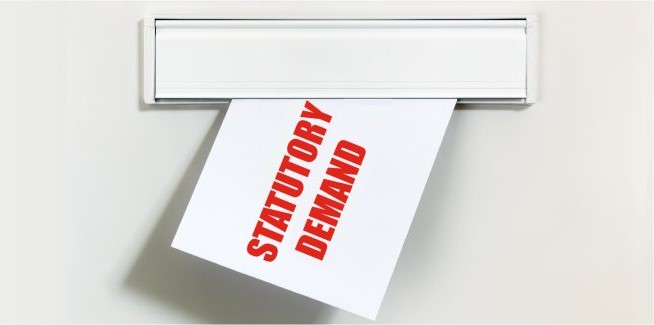How to challenge a statutory demand

Company directors, business owners, and individuals can expect to receive more statutory demands in 2022 compared to previous years. Why? Covid-19 has forced many people and companies to give more credit than usual, and making a statutory demand is the first thing they’ll do when attempting to recover overdue debts.
A statutory demand is a document that formally requests payment of an overdue debt within 21 days. Making a demand is usually the first step in the process when a creditor (a company or person you owe money) wants to:
- Recover the overdue debt
- Make you bankrupt
- Force your company into compulsory liquidation
Creditors can make statutory demands to limited companies for debts that are:
- Less than six years old
- £10,000 or more (increased from £750 due to the temporary CIGA restrictions)
However, the threshold is £5,000 if the debt is owed by an individual.
Challenging a statutory demand
Essentially, there are three ways to challenge a statutory demand:
- Pay the debt immediately
- Make arrangements to pay all or part of the debt
- Dispute all or part of the debt
Additionally, if you respond within 18 days and the debt is disputed or more than six years old, you can apply to the court for the statutory demand to be set aside and dismissed. Irrespective of the option you choose, it’s vital that you act early.
If you’re going to dispute the debt, you must respond to the statutory demand within 18 days in writing. Explain in detail the grounds for the dispute. The creditor must oblige if you follow up with an invitation to withdraw the statutory demand.
A limited company may apply for injunctive relief if the creditor doesn’t withdraw the statutory demand after you’ve notified them of a dispute.
Court injunction
If the court grants the injunction, your creditor will probably have to pay your legal expenses. Realistically, those costs could range from £5,000 to £15,000, or more if the injunction is unsuccessfully resisted.
The legal grounds for challenging a statutory demand can be technical. As a result, it’s always a good idea to seek advice and guidance from an independent insolvency specialist.
Insolvency & Law can act on your behalf to communicate with your creditor or their solicitor, and seek the immediate withdrawal of a statutory demand. It may take some time to reach an agreement, depending on:
- Your company’s circumstances
- Your personal circumstances
- How you wish to proceed
Counterclaiming is another useful strategy you can employ to defeat a statutory demand. A counterclaim may neutralize a difficult creditor if your claim for direct, indirect, or consequential loss is worth more than their claimed debt.
The Grim Truth for Loan Note Holders -79th Luxury Living Six Ltd (LL6)
No assets or safeguards. No clear path to recovery. If you’re one of the many investors who entrusted your money to The 79th Group’s loan…
Read MoreOverdrawn Directors’ Loan Accounts: How to Avoid Trouble
Many company directors borrow money from their businesses through what’s known as a director’s loan account (DLA). In principle, there’s nothing wrong with this, so…
Read MoreDebt Assignment Explained: A Strategic Tool for Creditors
In today’s volatile commercial landscape, unpaid debts can severely undermine cash flow, disrupt operations, and threaten the survival of a business. For creditors facing non-performing…
Read MoreThe 79th Group Administration: What It Means for Loan Note Holders
As The 79th Group enters administration, many loan note holders are left uncertain about what this means for their investment. What happens to the money?…
Read More



